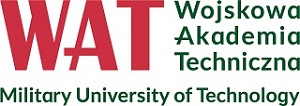CETEF’22 – THE ROUND TABLE OF DIGITAL TRANSFORMATION
TWO DAYS DEDICATED TO INTERACTIVE EXCHANGE OF INFORMATION
Effective and rapid digital transformation of industry and socio-economic infrastructure is one of the main objectives of the European innovation policy, which was defined by the European Parliament and the European Commission for accomplishment within 2021-2027 framework. The importance of this objective has considerably increased in recent times as a result of the pandemic and the war in Ukraine. More than 150 billion euro in the form of grants and loans has been allocated to the member states from the Recovery and Resilience Facility for the purposes of implementing and accomplishing the objective. Additionally, significant funds have also been allocated for these purposes within the framework of the operational programmes of particular EU member states for 2021-2027.
The dynamic development in information technologies has indubitably enabled digitisation of all areas of social and economic life. Nonetheless, it appears to be an insufficient factor in this context. As a matter of fact, digitisation depends largely on the technical level of numerous complementary fields: automatics, robotics, mechatronics, electronics, photonics, as well as smart energy grids and smart transport networks. Carrying out effective digital transformation is impossible without simultaneous development of the above-mentioned disciplines.
The objective of the Central European Technology Forum (CETEF’22) is to create an international platform allowing for discussion of the European policy regarding the development of technical and technological fields which are decisive for the success of digital transformation. The participants of the Forum sessions will be stakeholders representing 16 countries of Central Europe, including:
- executives and management members of research and development centres and projects managers responsible for digital transformation,
- managers responsible for the development of technological infrastructure for industry and services,
- managers of companies specialising in design and integration of industrial automation systems and logistics automation systems,
as well as representatives of institutions, ministries and government agencies distributing and allocating funds for supporting digital transformation in the European economy. Mariya Gabriel, acting as European Commissioner for Innovation, Research, Culture, Education and Youth, and Peter Droell, acting as Director General for Research and Innovation of the European Commission are among the most prominent guests to participate in the Forum.
Europe has all it takes to accomplish the objectives associated with digital transformation: nearly 2 million researchers, thousands of universities, research institutes and research & development centres, well-developed industry, and the world’s fastest growing large group of start-ups. Europe is a powerful global scientific research centre. However, in comparison with other huge world economies, Europe cannot optimally harness the potential generated by the knowledge possessed and the financial funds available at its disposal for the purposes of stimulating its development.
While attending the two-day discussions, the Forum participants will ponder over the directions concerning effective allocation of the EU funds earmarked for supporting digital transformation, deliberate about improving the financing mechanisms and executing the projects undertaken in this respect, as well as debate about the current state and development directions in relation to the technologies which are vital to the success of digital transformation.
Moreover, the thematic sessions held throughout the Forum will also feature presentation of the technological achievements of pre-eminent international concerns and leading Polish companies specialising in developing products and services related to digital transformation.
PartnerS





























